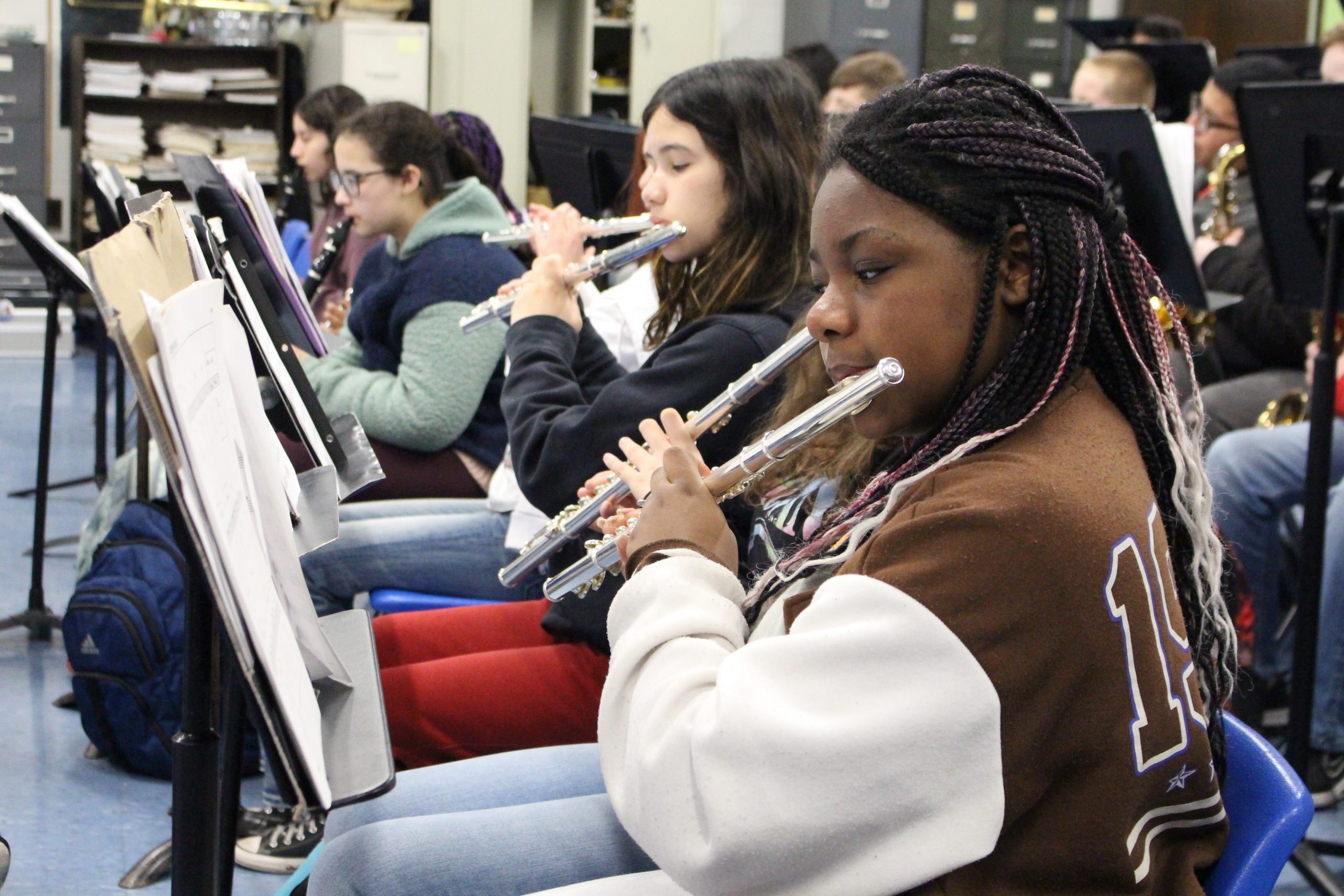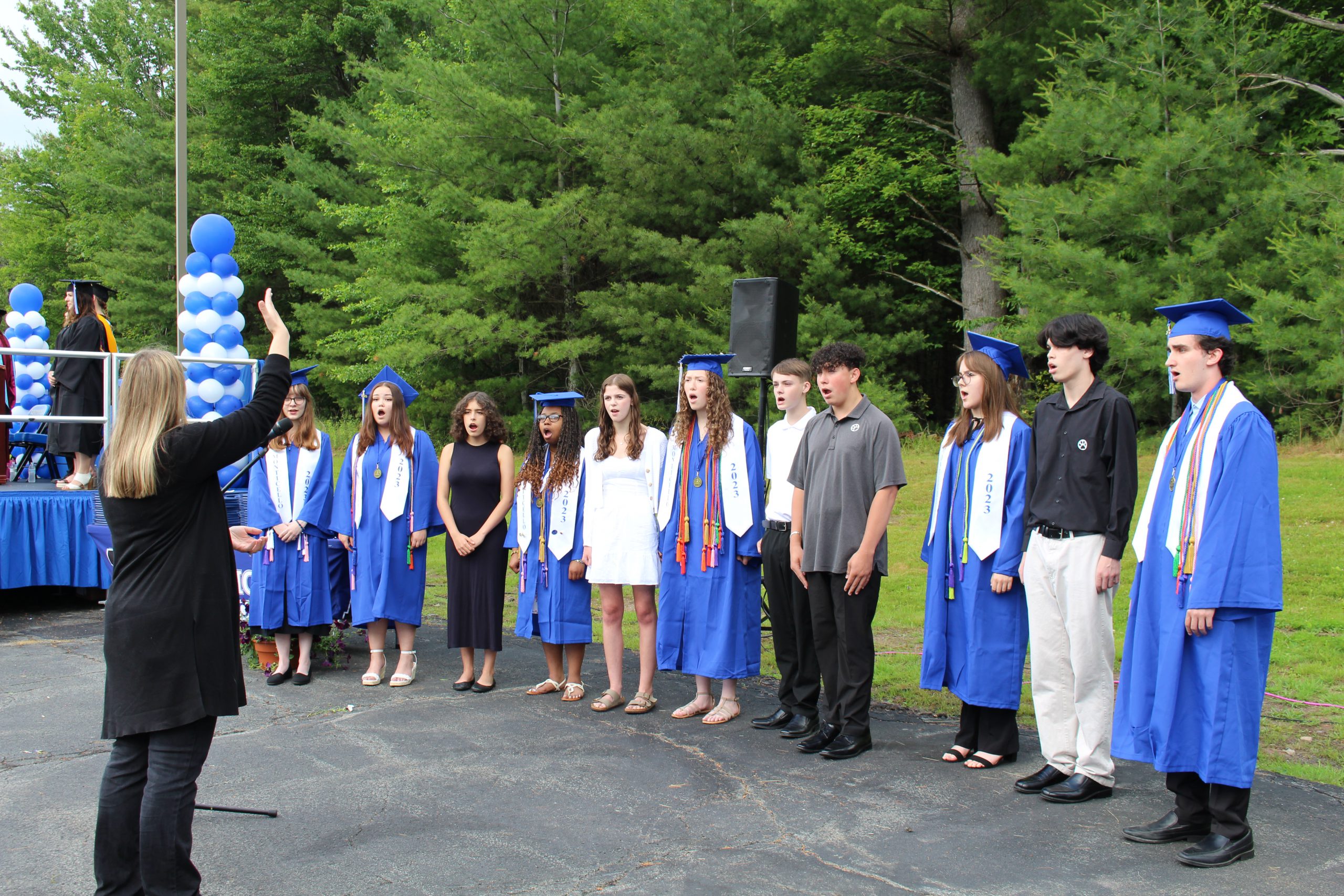 The Monticello Central School District has been honorably named a “Best Community for Music Education” by the National Association of Music Merchants (NAMM) Foundation for the 14th consecutive year. The designation shows a commitment by our Board of Education and Administration, coupled with the dedication of our highly qualified music teachers, to provide a deep and meaningful music education to all students of our district.
The Monticello Central School District has been honorably named a “Best Community for Music Education” by the National Association of Music Merchants (NAMM) Foundation for the 14th consecutive year. The designation shows a commitment by our Board of Education and Administration, coupled with the dedication of our highly qualified music teachers, to provide a deep and meaningful music education to all students of our district.
To qualify for the Best Communities designation, MCSD answered detailed questions about funding, graduation requirements, music class participation, instruction time, facilities, support for the music program and community music-making programs. Responses were verified by school officials and reviewed by The Music Research Institute at the University of Kansas.
 “The Monticello Central School District proudly accepts its designation as a Best Community for Music Education,” said Director of English Language Arts, Social Studies, Arts Keith Petzinger. “To uphold this recognition for 14 years is a testament to the unwavering teacher commitment in and out of the classroom, the dedication of our students, and the continued support of our community. Music education remains imperative in its profound effect on our students including the ability to increase academic performance, improve emotional intelligence, and develop social skills. This acknowledgement is shared in thanks with those who contribute to Monticello’s Performing Arts and may our students continue to flourish within the program.
“The Monticello Central School District proudly accepts its designation as a Best Community for Music Education,” said Director of English Language Arts, Social Studies, Arts Keith Petzinger. “To uphold this recognition for 14 years is a testament to the unwavering teacher commitment in and out of the classroom, the dedication of our students, and the continued support of our community. Music education remains imperative in its profound effect on our students including the ability to increase academic performance, improve emotional intelligence, and develop social skills. This acknowledgement is shared in thanks with those who contribute to Monticello’s Performing Arts and may our students continue to flourish within the program. “The problems of the world require creative solutions and music is the practice of creativity,” said General Music and Chorus Teacher Tim Buckley. “When we practice music in our schools, we are creating a better future. “
Research into music education continues to demonstrate educational/cognitive and social skill benefits for children who make music. After two years of music education, researchers found that participants showed more substantial improvements in how the brain processes speech and reading scores than their less-involved peers and that students who are involved in music are not only more likely to graduate high school but also to attend college as well. In addition, everyday listening skills are stronger in musically trained children than in those without music training. Significantly, listening skills are closely tied to the ability to: perceive speech in a noisy background, pay attention, and keep sounds in memory. Later in life, individuals who took music lessons as children show stronger neural processing of sound: young adults and even older adults who have not played an instrument for up to 50 years show enhanced neural processing compared to their peers. Not to mention, social benefits include conflict resolution, teamwork skills, and how to give and receive constructive criticism.
About The NAMM Foundation
The NAMM Foundation is a nonprofit supported in part by the National Association of Music Merchants and its 15,000 member companies and individual professionals. The foundation advances active participation in music making across the lifespan by supporting scientific research, philanthropic giving, and public service programs. For more information about The NAMM Foundation, please visit www.nammfoundation.org.
